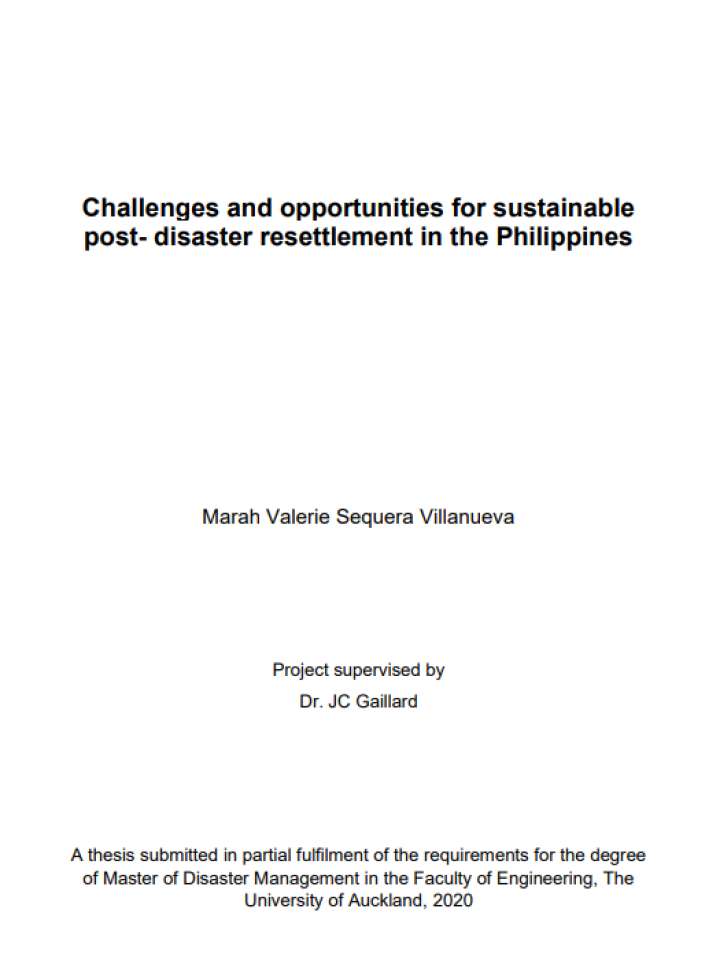Challenges and opportunities for sustainable post-disaster resettlement in the Philippines
The catastrophic effects of natural hazards cause temporary or permanent displacement of people. In the aftermath of a disaster, resettlement is often implemented to reduce future risks. People are also resettled when they cannot go back to their place of origin due to detrimental changes in environmental conditions. This study examines people’s experiences in post-disaster resettlement in the Philippines. The country is highly vulnerable to natural hazards and a vast number of people are displaced by disasters and thus forced to resettle every year. The study builds upon Scudder and Colson’s seminal framework that identifies four successive stages in the resettlement process. It uses qualitative research methodology to provide a case comparison analysis of resettlement following the 1991 eruption and subsequent lahars of Mt. Pinatubo, the 2006 Mt. Mayon eruption, Typhoon Sendong in 2011 and Typhoon Yolanda in 2013.
The study shows that access to government services and employment, distance from social ties, places of origin and work, resettlers’ participation in the resettlement process, and resettlement governance affect resettlement outcomes. These factors influence how quickly people settle in their new home and move through the different resettlement stages. The study also finds that if the social, cultural, and economic needs of the resettlers are neglected, it is then hard to reach the long process of development and incorporation. Thus, this study raises a need to ensure the resettler’s participation in decision-making throughout the resettlement process, to enable a more organic and sustainable resettlement
